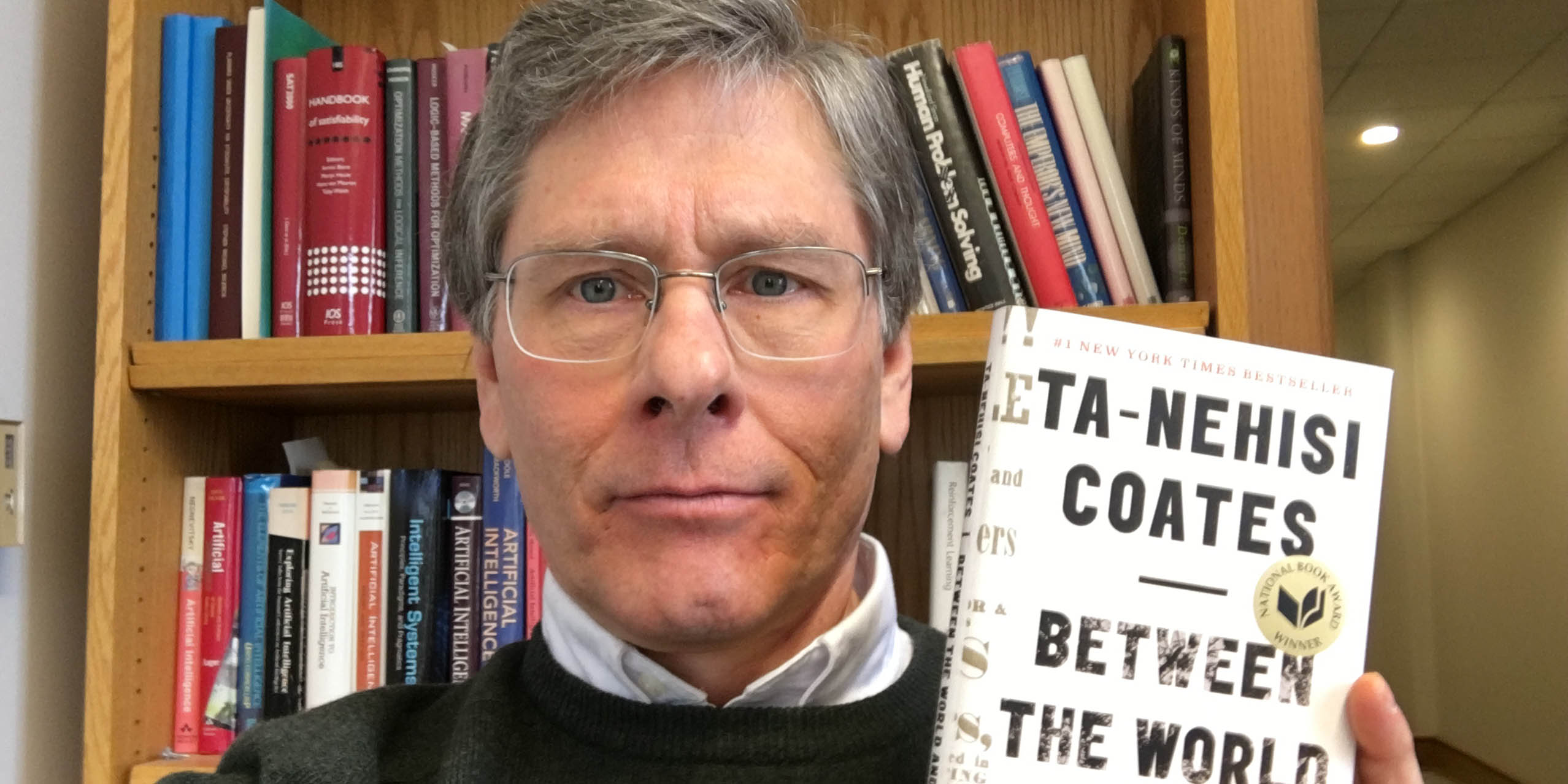
Writing to his teenage son, Samori, Ta-Nehisi Coates tries to provide an answer to what he describes as the question of his life: “how one should live within a black body, within a country lost in the Dream.” The Dream is the mistaken, exclusionary belief of white people that they are white, which, Coates asserts, is not a skin color or race, but, rather, a “syndicate arrayed to protect its exclusive power to dominate and control our bodies…. The power of domination and exclusion is central to the belief in being white.”
Coates’ answer to his central question is extremely pessimistic. We may have elected a black president twice, but the murders of Trayvon Martin, Michael Brown, and Eric Garner, among many others, remind us that it is far too soon to start celebrating. Coates argues that the Dreamers have deliberately forgotten the horror of the slavery upon which their lives are built, and he counsels his son not to depend on them waking up. Indeed, Coates feels that it will never be time to celebrate. “Our triumphs can never redeem this [history of subjugation].” Racial injustice is too deeply embedded in the social fabric of America. I think Coates would say that racial injustice is the social fabric of America. All that a black person can do is struggle and try to take satisfaction in the struggle. “The struggle is really all I have for you,” he tells his son, “because it is the only portion of the world under your control.”
One of the most compelling aspects of Coates’ writing is the physicality of it. “[R]acism is a visceral experience,…it dislodges brains, blocks airways, rips muscle, extracts organs, cracks bones, breaks teeth.” In an often quoted passage, Coates tells his son: “Here is what I would like for you to know: In America, it is tradition to destroy the black body—it is heritage.” This physicality makes “racism,” often discussed at a very abstract level, concrete in a wrenching way. Coates tells his son that the police have been given the authority to destroy black bodies, and he describes being stopped in his car by the police, for no apparent reason, and realizing that he could die, that the police could kill him for no reason and almost certainly not be held accountable for his death.
Books that change the way you think are uncommon. This has been such a book for me. In a way, though, it is inaccurate to say that it has changed the way I think. It has, rather, taken apart my thoughts on issues of race in our society. I’m currently in the process of putting them back together.

